|
SEABIN
& PETE CEGLINSKI
ABOUT -
CONTACTS - FOUNDATION -
HOME - A-Z INDEX
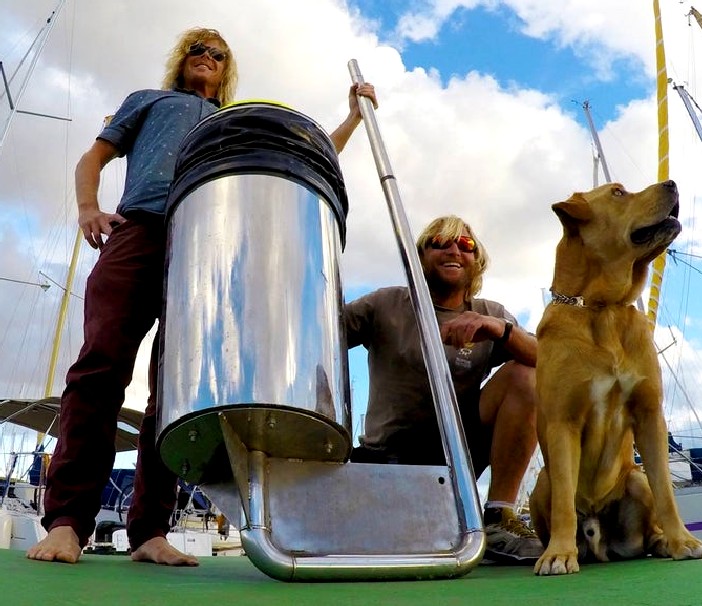
The technology group Wärtsilä's project to bring floating rubbish bins to Finland is making progress. The project is being executed in honour of Finland's centenary. The Seabin floating rubbish bin donated by Wärtsilä to the city of Turku was installed for test use in Turku guest harbour on the Aurajoki river today. The installation was part of the Tall Ships Race event. The City of Turku Public Utility Property Management and the Turku guest harbour will be responsible for the operation and upkeep of the Seabin in Turku. The Seabin in Turku is the first one located on a river, and the Seabin Project is looking forward to the results from this test use. Now collecting oil for special "oil absorbers" will be tested, the oil absorbers will be installed in sea buckthorn bags.
“Wärtsilä is taking responsibility for the future of the marine environment and has invested in developing environmental technology for the marine industry. Wärtsilä has a long history in
Turku, and we are pleased to get the opportunity to test the Seabin here as well. However, it should also be kept in mind that every one of us can do our bit for the cleanliness of the marine environment,” says Atte Palomäki, Executive Vice President, Communications and Branding at Wärtsilä and member of the Management Board.
Pete Ceglinski from the Seabin Project says: "The team at Seabin Project is extremely proud to see the simple, yet innovative Seabin technology being rolled out through Finland by our pilot partner Wärtsilä. This year is an extremely important period for Seabin to develop strategic partnerships with key partners in order to further develop the technology with a real time return of user experience. Working together with industrial leaders like Wärtsilä and forward thinking countries such as Finland is the real way forwards in the fight against the global issue of ocean plastics."
“The City of Turku welcomes the floating rubbish bin. We are interested to see the results from its operation. Turku works hard for a cleaner environment, and a floating rubbish bin is therefore a great fit for our city. The emptying of the Turku Seabin and data collection will be organised in collaboration with Turku University of Applied Sciences. A group of students will be doing the work in practice. This is a great opportunity to participate in practical environmental work for the students as well,” says Saara Malila, Director of Communications, City of Turku.
Wärtsilä has collaborated with the Keep the Archipelago Tidy Association by supporting its operations and coastal cleanliness since 2009. In 2017, the collaboration and support will be weighted towards the beach clean-up work promoted by the Clean Beach campaign. Aija Kaski, Secretary General: “In addition to concrete waste management, we want to influence attitudes on many levels. The Clean Beach campaign, also supported by Wärtsilä, has been one way to increase awareness of littering and also encourage people to participate. Ever since 2011, we have been collecting data on the type and amount of litter found on the beaches we study around
Finland. This year, we also published the first Finnish nonfiction book on marine littering, and next week we will investigate the amount of rubbish in the Aurajoki river.”
During the partnership programme, Wärtsilä has already donated two floating rubbish bins to the City of Helsinki and the Port of Helsinki. The Seabin installed in Uunisaari in May has been relocated close to the pier of the Sirpalesaari boat in Kaivopuisto. The other Seabin has been tested in Allas Sea Pool. By testing and learning lessons from the pilot versions in Helsinki, new kinds of attachment systems have been developed and installed that suit Finland's local conditions better.
What is the Seabin?
The Seabin Project provides solutions to the problem of littering in seas around the world. The project is approaching the challenge from several angles, with special focuses on education, research and technology.
The Seabin is a floating rubbish bin that is located in the water at marinas, docks, yacht clubs and commercial ports, where it collects all floating rubbish. Water is sucked in from the surface and passes through the catch bag inside the
Seabin. The water is then pumped back into the marina leaving litter and debris trapped in the catch bag to be disposed of properly. The Seabin also has the potential to collect some of the oils and pollutants floating on the water surface. The Seabin Project's team currently uses 12-volt submersible water pumps that can utilise alternative and clean energy sources. These may include solar, wave or wind power, depending on the location and available technology.
Wärtsilä will be operating as the Seabin Project's global pilot partner for the next three years. The other six pilot partners are La Grande Motte in Southern France, Porto Montenegro in Montenegro, Port Adriano in Mallorca
(Spain), Butterfield in Bermuda, and Safe Harbor Marinas in the
United
States. Seabin Project launched its new V5 Hybrid model at the end of April. It then began installing prototypes at its pilot partners' sites. For a three-month trial period, the pilot partners will provide information about how the floating rubbish bins have functioned. Seabins are expected to go on commercial sale during the autumn.
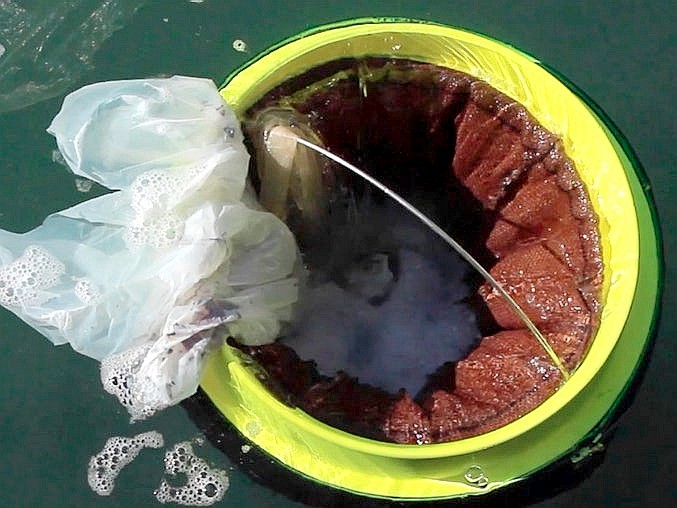
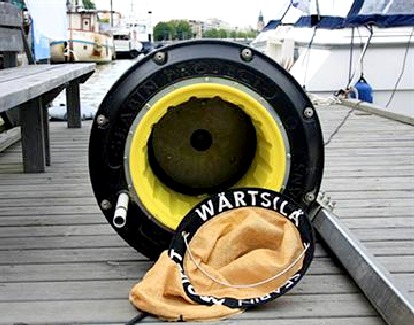
Wärtsilä's sustainable environmental initiatives
Wärtsilä is a member of the Sustainable Shipping Initiative and is a signatory to the UN's Global Compact initiative. The company is transforming traditional shipping and energy markets by developing sustainable and renewable solutions that improve the environmental footprint of maritime transport and energy generation.
Wärtsilä offers high technology designed to reduce ship emissions: systems for scrubbing exhaust gases and dual fuel engines, which are primarily designed for liquefied natural gas – a cleaner alternative to diesel and biodiesel. Wärtsilä also designs, delivers and installs technologies designed for processing ballast water, reducing the amount of pollution released into oceans. This is beneficial to marine ecosystems all around the world. Wärtsilä's remote monitoring and equipment monitoring help to optimise ship operations.
Wärtsilä's strong offering has received significant reinforcement in the form of solar energy solutions. Wärtsilä's sustainable innovations help its customers to reduce their carbon emissions. Wärtsilä is the first company to offer large-scale solar hybrid power plants. Hybrid solutions combine solar power farms with Wärtsilä's smart and highly flexible power plant solution. Both units operate in a synchronised manner, cutting the amount of fuel consumed by the engines.
Background to ocean littering
Plastic has an astonishingly large impact on the environment and ecosystems. It is estimated that by 2025, the oceans will contain one ton of plastic for every three tons of fish. It is also estimated that by 2050, the oceans will contain more plastic by weight than fish (source:
Ellen Macarthur
Foundation, 2016). In the past ten years, more plastic has been produced in the world than in the entire 20th century. Plastic causes more than
USD 13
billion of damage to marine ecosystems every year. Animals swallow our waste and become entangled in it. Local marine environments suffer, which decreases fish and shellfish stocks. Shipping and tourism may suffer, as people are exposed to harmful impurities when they inadvertently eat polluted seafood.
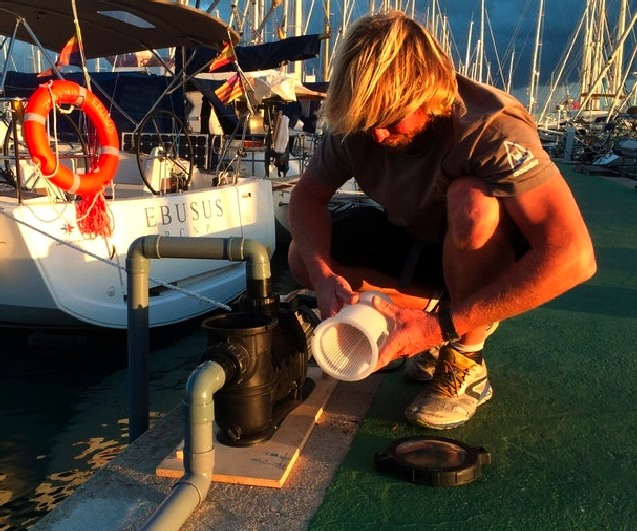
NEW
ATLAS, DECEMBER 21 2015 - Ocean-friendly Seabin sucks up surrounding sea trash
The mounting plastic waste in the world's oceans has been the subject of of some pretty bold environmental undertakings, perhaps none more so than the Ocean Cleanup Project aiming to eradicate the Great Pacific Garbage Patch. The Seabin Project represents a smaller-scale approach, but it is noble in its aspirations all the same. Installation in ports and marinas sees this ocean-friendly trash can suck up the surrounding debris and even remove oil from the water.
Dreamt up by two Australian surfers who had grown tired of taking to the local waters amid floating plastic and rubbish, the Seabin is basically a water filtering system designed for contained environments like yacht clubs, marinas and ports. Without needing to contend with stronger currents and ocean storms, here it can chip away at pollution in visible areas where there is plenty of human activity
It is installed on a dock and plumbed into a shore-based water pump. With the rim sitting even with the surface of the water, the pump sucks water into the bin and brings the surrounding trash, oil and detergent along for the ride. A removable catch bag made from natural fiber then gathers the debris and the water is pumped through to an (optional) oil-water separator, before being fed back into the ocean once cleaned.
The team has developed a functioning prototype, and says that it hopes to eventually produce subsequent models with the plastics collected from previously installed Seabins. It has turned to Indiegogo to raise funds for commercial production, having raised more than US$75,000 of its $230,000 goal at the time of writing. It is offering the Seabins for an early pledge of US$3,825, with shipping slated for November 2016 if all goes to plan.
By Nick Lavars
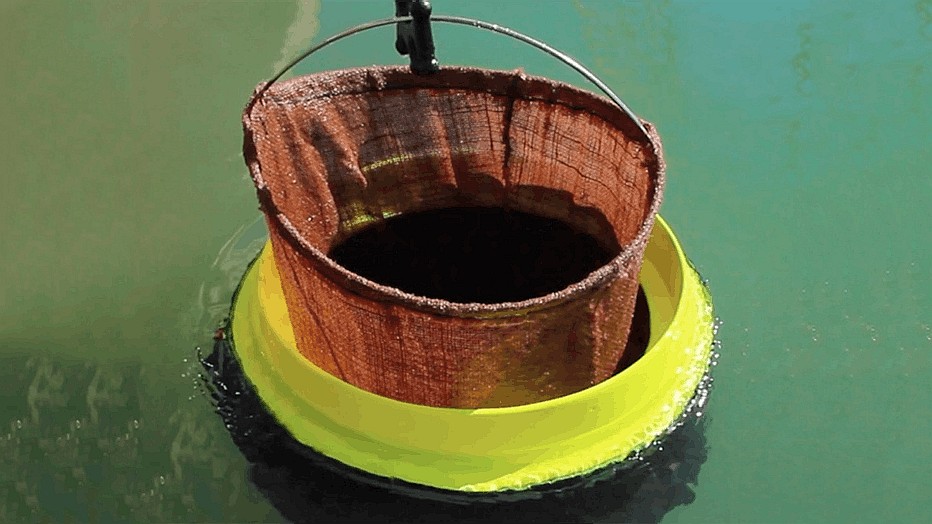
CONTACTS
Wärtsilä
Atte Palomäki
Executive Vice President, Communications & Branding
atte.palomaki@wartsila.com
Tel: +358 10 709 5599 Sari Luhanka
Global Media Relations Manager
sari.luhanka@wartsila.com
Tel: +358 50 3860 353
Seabin Project
Pete Ceglinski
Managing Director & Founding Partner
pete@seabinproject.com
Tel:+34 694 442 605
City of Turku
Construction Manager
Janne Laine
janne.laine@turku.fi
Tel: +358 50 464 8681
Turku guest harbour
Harbourmaster
Toni Ljungqvist
toni@turunvierasvenesatama.fi
+358 400 880051
LINKS
& REFERENCE
http://www.wartsila.com/
http://newatlas.com/seabin-ocean-trash/41023/
http://www.seabinproject.com/
https://www.wartsila.com/media/news/21-07-2017-seabin-floating-rubbish-bin-donated-by-wartsila-installed-in-turku-guest-harbour-on-the-aurajoki-river
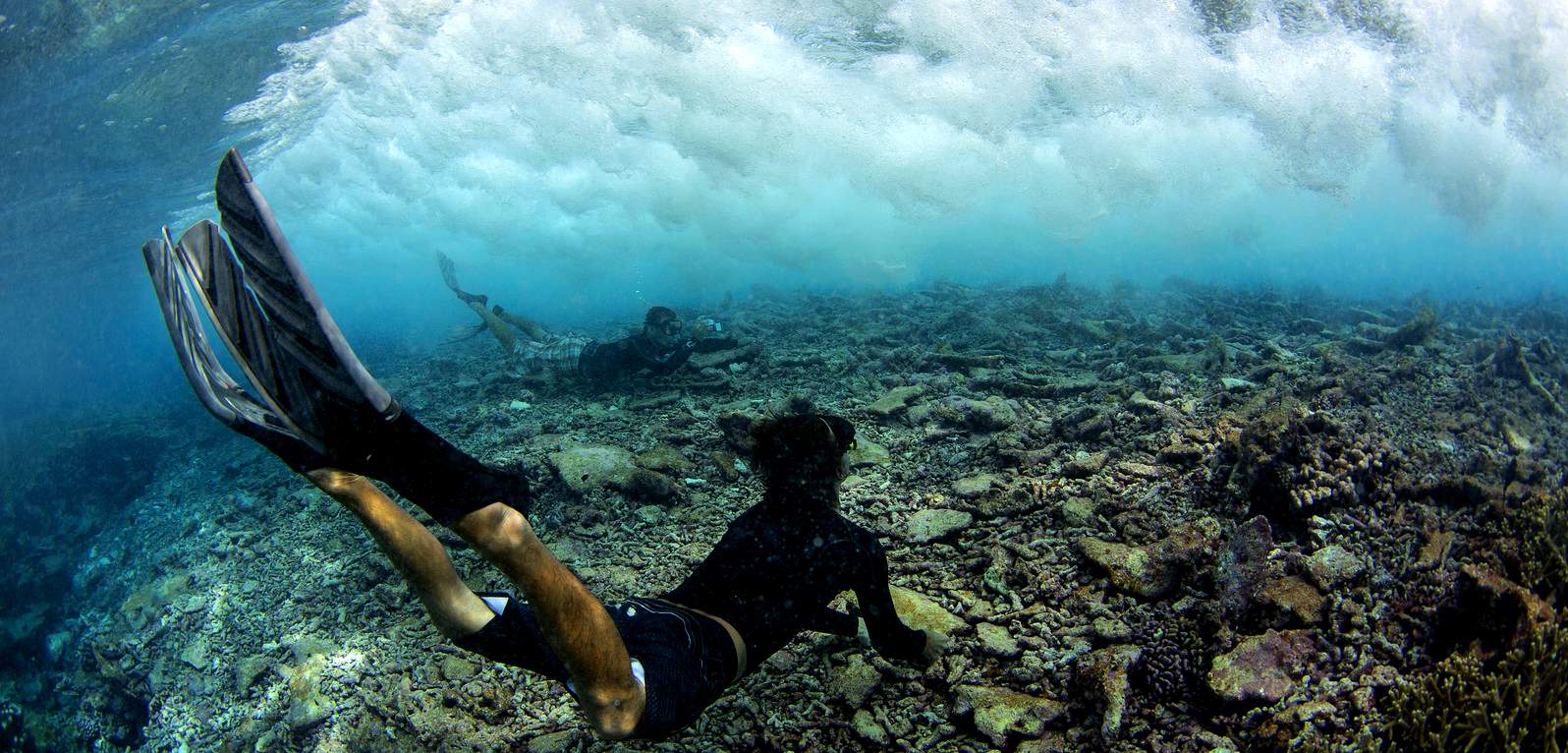
DEAD
CORAL REEFS - This
underwater cemetery
is proof of the harm Man is causing marine life where the
damage cannot normally be seen.
This
website is provided on a free basis as a public information
service. copyright © Cleaner
Oceans Foundation Ltd (COFL) (Company No: 4674774)
2017. Solar
Studios, BN271RF, United Kingdom.
COFL
is a charity without share capital.
|





